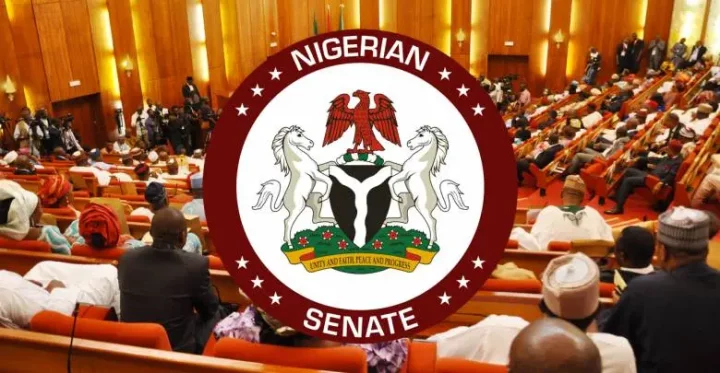
Following criticisms and pressures on the tax reform bills forwarded to the National Assembly by President Bola Tinubu for consideration, the Senate yesterday suspended further legislative actions on the bills.
Vanguard gathered that the decision was taken after the leadership of the Senate met with the Presidency on how to resolve the thorny issues that were polarising the polity.
In the Senate, the strongest push back to the tax bills came from the North, with Senator Ali Ndume, leading the pack.
Governors Babagana Zulum of Borno, and Sule Abdullahi of Nasarawa, Northern Elders Forum, NEF, National Economic Council, NEC, chaired by Vice President Kashim Shettima, were among those who kicked against the bills, and urged further and wider consultation.
Meanwhile, Chairman of the Presidential Committee on Tax Policy and Fiscal Reforms, Mr. Taiwo Oyedele, said yesterday efforts were being made to protect the interests of states opposed to the proposed bills.
Massive pressure attacks
Assailed by attacks from within and outside, the Upper Chamber of the National Assembly bowed to pressure, yesterday, and made a u-turn on its decision to carry out a public hearing on the bills.
Consequently, it set up a 10-man committee to meet with the Attorney General of the Federation and Minister of Justice on ways to resolve contentious issues in the bills.
The Senate asked its committee on finance to stop further action on the tax bills that passed for second reading last week.
This was made known by the Deputy President of the Senate, Senator Jibrin Barau, who presided during yesterday's plenary.
The Senate Minority Leader, Abbah Moro, will chair the committee that will liaise with the Attorney-General of the Federation and Minister of Justice to eliminate the contentious clauses in the tax bills.
Other members of the committee are Adamu Aliero Orji Kalu, Seriake Dickson, Titus Zam (Benue South), Abdullahi Yahaya (Kebbi), Adeola Olamilekan, Sani Musa and Adetokunbo Abiru.
Barau said: "On the tax reform bills currently before us, we acknowledge that the Senate remains the highest legislative assembly in this country.
"The Senate comprises men and women of wisdom and experience, entrusted to legislate for the peace, stability, and development of the nation.
"The Senate like similar bodies globally, serves as a stabilizing force in times of difficulty or disagreement. Through dialogue and consensus, the Senate has consistently provided solutions to national challenges since 1999.
"In this regard, we have decided to set aside politics, ethnicity, and regionalism to work together on resolving the issues surrounding the tax reform bills.
"In collaboration with the executive arm of government, we agreed to establish a forum to identify and address contentious areas to ensure national unity and progress.
"Before the introduction of these bills, we faced numerous challenges, including insecurity and economic issues.
"The President has been working to address these problems, and we are committed to supporting these efforts while tackling global economic challenges. We also agreed that no other issues should aggravate the country's current difficulties.
"It has been mutually decided between the executive and the Senate to engage the Judiciary to sort out these matters.
"The Attorney General of the Federation will be involved in discussions to identify and resolve areas of disagreement for the nation's benefit.
C'ttee to meet AGF today
"Tomorrow (today), the committee established by the Senate, along with its leadership, will meet with the Attorney General to address these issues.
"Consequently, the Senate committee on finance has been directed to pause further actions on public hearings and other matters related to the tax reform bills until the issues are resolved."
Sources of conflict
The Derivative clause and the Value Added Tax, VAT, sharing formula have been major sources of conflict.
The other stumbling block to the tax bills has been alleged " hidden agenda" especially in the timing and the haste with which the tax bills are being pushed through.
On September 3, 2024, President Bola Tinubu transmitted four tax reform bills to the National Assembly for consideration, following the recommendations of the Presidential Committee on Fiscal and Tax Reforms headed by Taiwo Oyedele for the review of existing tax laws.
The bills include the Nigeria Tax Bill 2024, which is expected to provide the fiscal framework for taxation in the country, and the Tax Administration Bill, which will provide a clear and concise legal framework for all taxes in the country and reduce disputes.
Others are the Nigeria Revenue Service Establishment Bill, which will repeal the Federal Inland Revenue Service Act and establish the Nigeria Revenue Service, and the Joint Revenue Board Establishment Bill, which will create a tax tribunal and a tax ombudsman.
Also recall that on the same day, both the Senate and the House of Representatives embarked on a hurried recess, the National Economic Council, chaired by Vice President Shettima resolved that the tax reform bills should be withdrawn from the National Assembly by President Tinubu for wider consultation.
However, President Tinubu on October 31, 2024, responded to the request that the bills should be allowed to pass through the required legislative processes at both chambers which, according to him, will give concerned Nigerians the opportunity to get details on the bills and make their inputs, particularly at the stage of public hearing.
Atiku, LP welcome Senate's decision
Commending the senate, the National Publicity Secretary of the Labour Party, LP, Mr Obiora Ifoh, said: "Democracy is all about consultations, discussions and listening to the needs of the electorate.
''There's nothing wrong with legislators taking a step back to consult more before passing a piece of legislation into law.
"Following the interest generated by the proposed law, the concerns raised by the National Economic Council and other stakeholders, including the Nigeria Governors Forum, it is wise to carry out a comprehensive consultation and public enlightenment on such matters before further action."
He added that democracy, which has been adjudged the best form of representative governance, revolved around meaningful dialogue.
When contacted, the Atiku Media Team said: "Our principal has said what needs to be said about the Tax Bills issue. It is heart warming that the legislature has decided to listen to alternative views and engage in wider consultation just like the former Vice President, Atiku Abubakar had suggested in his earlier intervention."
CUPP hails Senate's decision
The Coalition of United Political Parties, CUPP, hailed the Senate for halting further legislative action on the tax bills.
CUPP National Secretary, Chief Peter Ameh, said: "The Senate's decision to suspend further legislative action on the Tax Reform Bills is a welcome development that embodies the spirit of democratic governance.
''This move allows for further consultations, which is a normal legislative procedure aimed at gathering diverse views and incorporating them into the tax reform legislation.
"By suspending the bills, the Senate demonstrates its commitment to transparency, accountability, and inclusivity. This decision provides an opportunity for stakeholders, including citizens, experts, and interest groups, to contribute to the policy-making process.
''It also enables the Senate to reassess the bills' potential impact on various sectors and regions, ensuring that the final product is equitable and beneficial to all.
"The Tax Reform Bills have sparked intense debate, with some arguing that they would disproportionately affect certain regions or socioeconomic groups. The Senate's decision to suspend the bills acknowledges these concerns and shows a willingness to engage with critics and skeptics.
"In a democratic system, legislation should be a deliberative and iterative process. The Senate's move to suspend the Tax Reform Bills is a testament to this principle. It allows for a more comprehensive and nuanced consideration of the bills, ultimately leading to better policy-making.
"The Senate's decision to suspend further legislative action on the Tax Reform Bills is a positive development that underscores the importance of consultation, inclusivity, and deliberation in the policy-making process."
We're trying to protect those now opposing reform - Oyedele
Speaking on 'The Morning Show,' an Arise Television programme, yesterday, Oyedele said the Federal Government believed that the resistance would come from Lagos and Rivers states.
The chairman expressed disappointment over the rejection of tax reform bills, adding that the push-back was not expected from those opposing it.
"We had not envisaged that there was going to be push-back from the other states; we thought the push-back would come from Lagos mostly, maybe a little from Rivers. It's almost like we ended up with the people we are fighting for are now fighting us."
Oyedele noted that VAT derivation was sensitive for states due to its difference from oil and gas derivation, based on production.
Tax bills align with Constitution'
Oyedele, who noted the Federal Government's proposal aligned with the provision of the constitution, said: "VAT derivation I think that word is sensitive because people think about where it's based on production. If they're not producing crude oil, you don't get any part of that derivation.
"Whereas for VAT, every state consumes. If you share anything based on VAT derivation, everyone gets something from it.
"The Constitution, with respect to stamp duty, under Section 163, should be shared based on derivation.
"So what we are proposing is not strange to our constitution. When it comes to matters of tax generation, we must recognise where they're being generated otherwise we end up in a situation where one state will get a supreme court judgment."

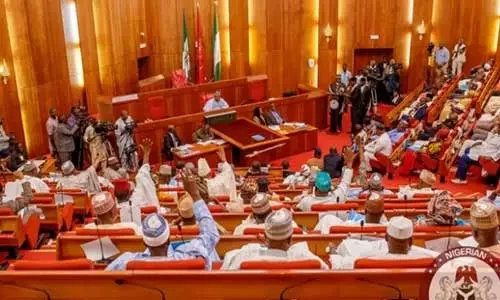
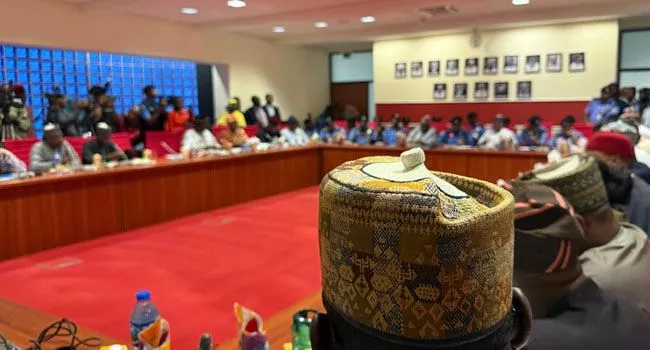
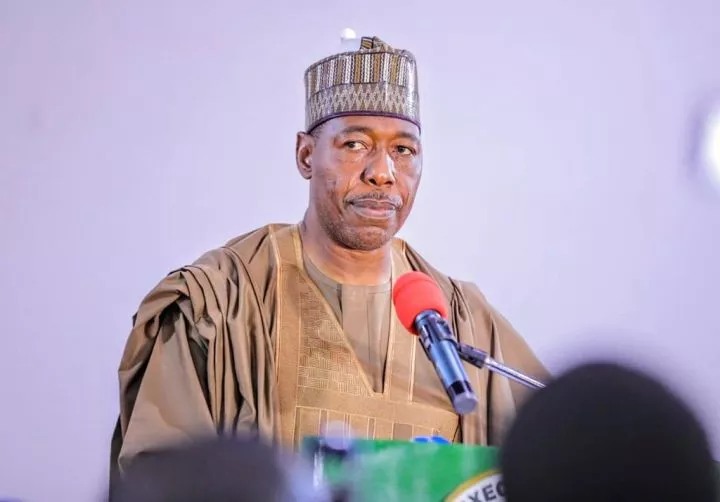
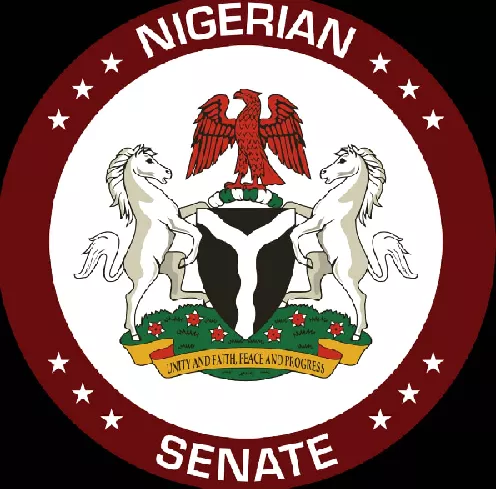










Comments